Saint Charles de Foucauld, in your love for God and all people, you lived in solitude, simplicity, and humility. Help us to trust in God's providence and to embrace the life of prayer and service. Guide us to love our neighbors, especially those most in need, and lead us to the heart of God. Through your intercession, may we grow in faith, hope, and charity. Amen.
ST. CHARLES DE FOUCAULD
ST. CHARLES DE FOUCAULD
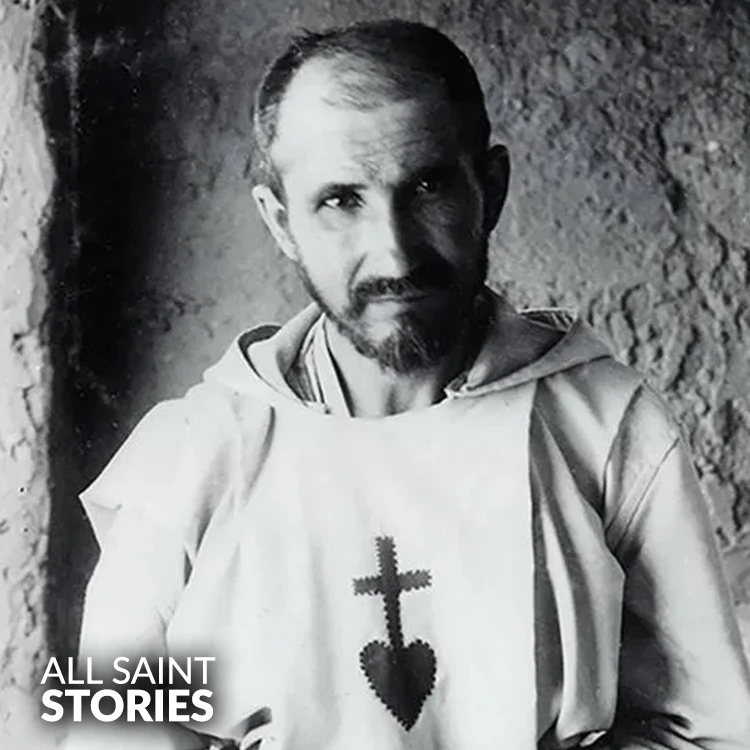
St. Charles de Foucauld was a French missionary, explorer, and priest who lived among the Tuareg people in Algeria. After a life of spiritual searching, he devoted himself to poverty, prayer, and evangelization. He was martyred on December 1, 1916, and canonized in 2022. His legacy continues through the Little Brothers and Sisters of Jesus, inspired by his radical faith and love for Christ.
St. Charles de Foucauld was born on September 15, 1858, in Strasbourg, France, into an aristocratic family. Orphaned at an early age, he was raised by his grandfather, who provided him with a privileged but somewhat undisciplined upbringing. As a young man, Charles led a worldly life, indulging in pleasures and abandoning his faith. However, his military career and travels in North Africa would lay the groundwork for his eventual conversion.
After joining the French army, Charles became fascinated with the cultures and landscapes of the Sahara. When he resigned from the military, he embarked on an exploration of Morocco, disguised as a Jew, in order to study the land and its people. This journey sparked a deep respect for the Islamic faith and a longing for a deeper spiritual purpose.
Upon returning to France, Charles underwent a profound religious conversion in 1886. He rediscovered his Catholic faith, attributing his transformation to the influence of his cousin and the guidance of a priest. Seeking a life of radical devotion, he joined the Trappists in 1890, living in strict monastic discipline first in France and later in Syria. However, he soon felt called to an even deeper solitude and intimacy with God.
Leaving the Trappist order in 1897, Charles traveled to the Holy Land, where he lived as a humble servant for the Poor Clares in Nazareth. There, he developed a spirituality centered on imitating the hidden life of Jesus in Nazareth—living in obscurity, simplicity, and prayer. In 1901, he was ordained a priest and returned to the Sahara, choosing to settle in Beni Abbès, Algeria.
Charles envisioned a new form of evangelization—not through preaching, but through presence. He sought to live among the people as a "universal brother," offering hospitality, charity, and quiet witness to Christ’s love. He later moved deeper into the desert, settling among the Tuareg people in Tamanrasset. He learned their language, recorded their culture, and worked tirelessly to improve their lives. He compiled a Tuareg-French dictionary, studied their traditions, and sought to build bridges between Christianity and Islam.
Despite his desire to evangelize, Charles was never able to establish a formal religious community during his lifetime. He lived alone in extreme poverty, dedicating himself to prayer, study, and serving those around him. His dream was to form a fraternity of believers who would live in deep communion with both Christ and their neighbors, especially the poor.
On December 1, 1916, Charles was killed by a group of local bandits during a raid in Tamanrasset. His death was a tragic but fitting culmination of his life—offered in total surrender to God and in solidarity with those he sought to serve.
Though he died alone, his writings and example inspired the foundation of the Little Brothers and Sisters of Jesus, religious communities that embrace his spirituality of Nazareth, humility, and missionary presence. His influence extended beyond Catholic religious orders, shaping modern Christian approaches to interfaith dialogue and missionary work.
Charles de Foucauld was beatified by Pope Benedict XVI in 2005 and canonized by Pope Francis on May 15, 2022. His feast day is celebrated on December 1, honoring his life of contemplation, missionary service, and deep love for Christ in the poorest and most forgotten places of the world. His legacy remains a powerful witness to the Gospel lived in radical simplicity and love.
Video Not Found
The information on this website is compiled from various trusted sources. While we aim for accuracy, some details may be incomplete or contain discrepancies.
If you notice any errors or have additional information about this saint, please use the form on the left to share your suggestions. Your input helps us improve and maintain reliable content for everyone.
All submissions are reviewed carefully, and your personal details will remain confidential. Thank you for contributing to the accuracy and value of this resource.
Credits & Acknowledgments
- Anudina Visudhar (Malayalam) – Life of Saints for Everyday
by Msgr. Thomas Moothedan, M.A., D.D. - Saint Companions for Each Day
by A. J. M. Mausolfe & J. K. Mausolfe - US Catholic (Faith in Real Life) – Informational articles
- Wikipedia – General reference content and images
- Anastpaul.com – Saint images and reflections
- Pravachaka Sabdam (Malayalam) – Saint-related content and insights
We sincerely thank these authors and platforms for their valuable contributions. If we have unintentionally missed any attribution, please notify us, and we will make the correction promptly.
If you have any suggestion about ST. CHARLES DE FOUCAULD
Your suggestion will help improve the information about this saint. Your details will not be disclosed anywhere.
© 2026 Copyright @ www.allsaintstories.com

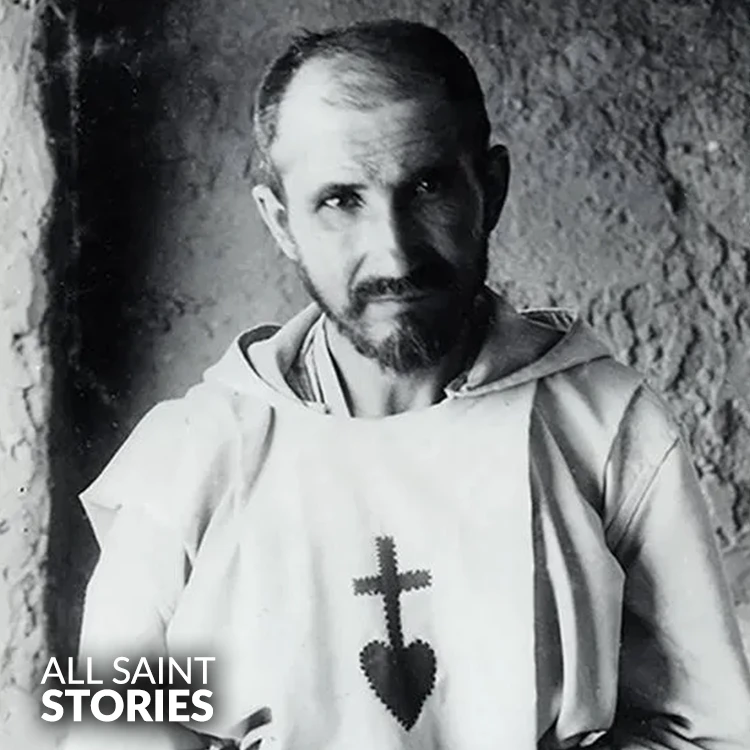
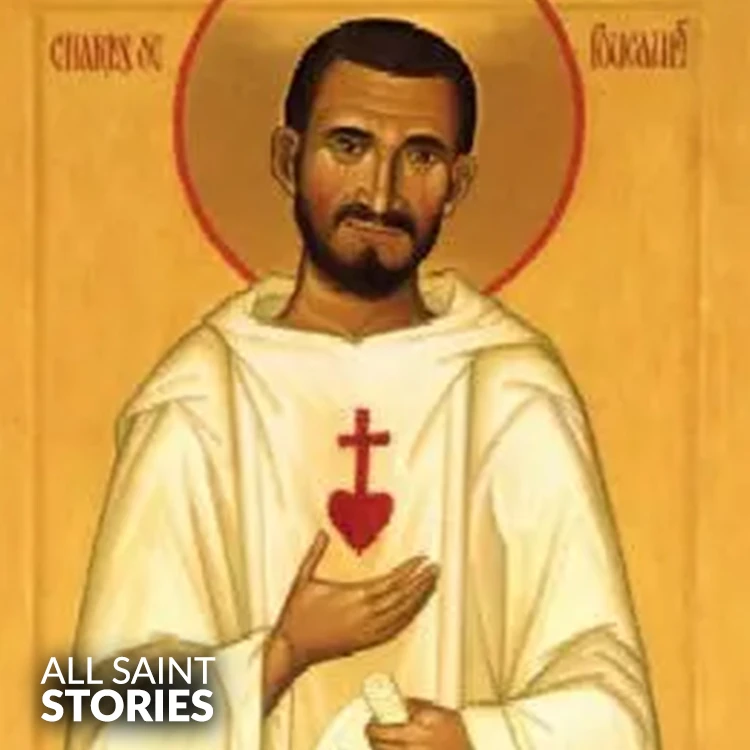
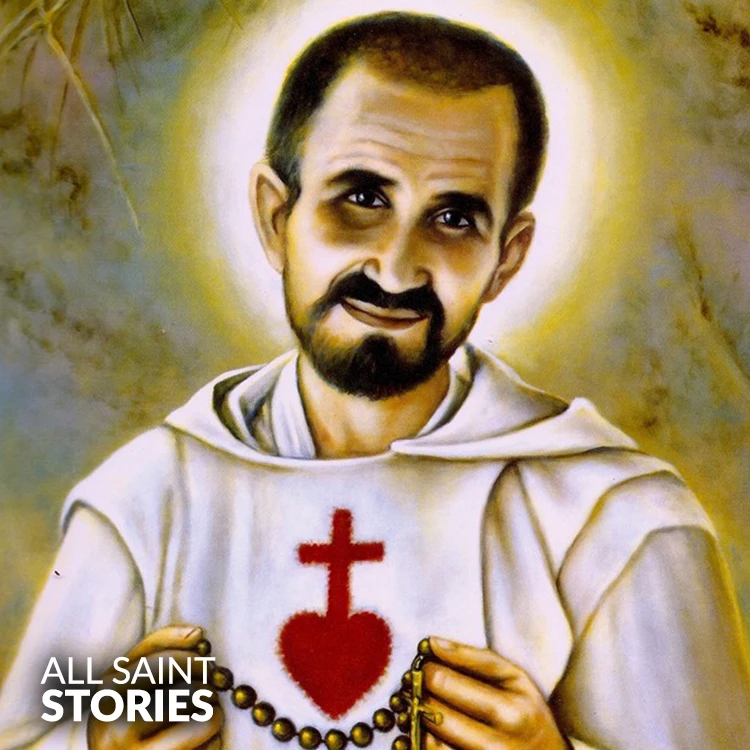
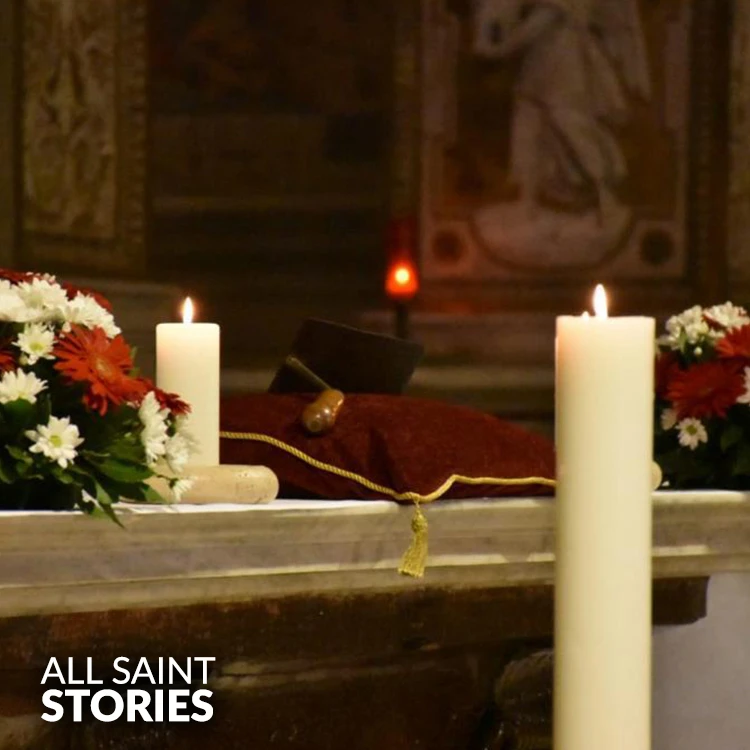
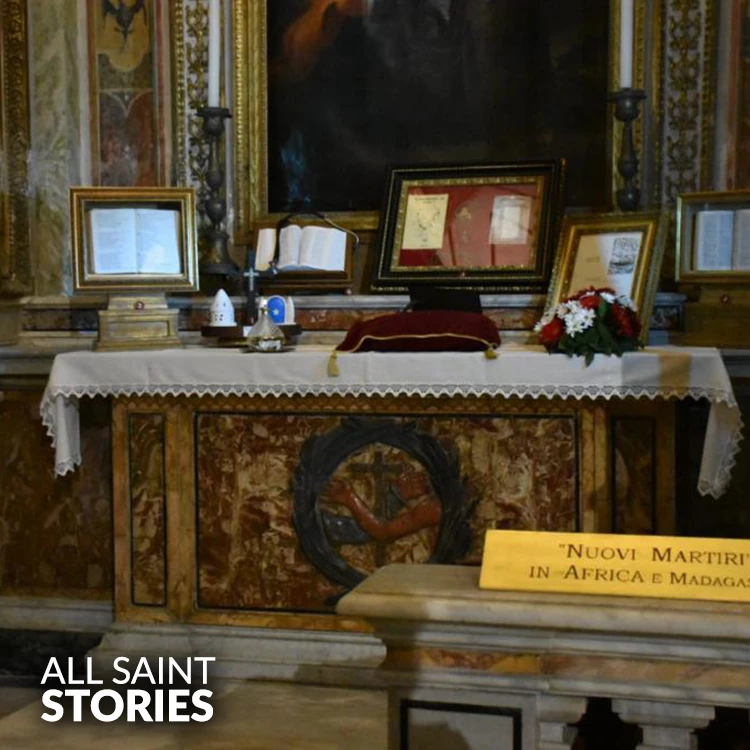

 English
English
 Italian
Italian
 French
French
 Spanish
Spanish
 Malayalam
Malayalam
 Russian
Russian
 Korean
Korean
 Sinhala
Sinhala
 Japanese
Japanese
 Arabic
Arabic
 Portuguese
Portuguese
 Bantu
Bantu
 Greek
Greek
 German
German
 Dutch
Dutch
 Filipino
Filipino